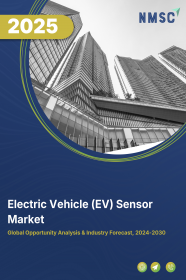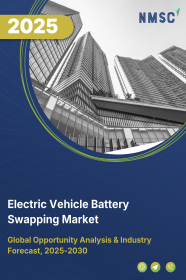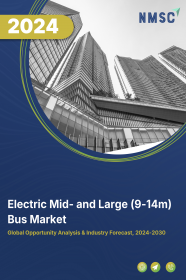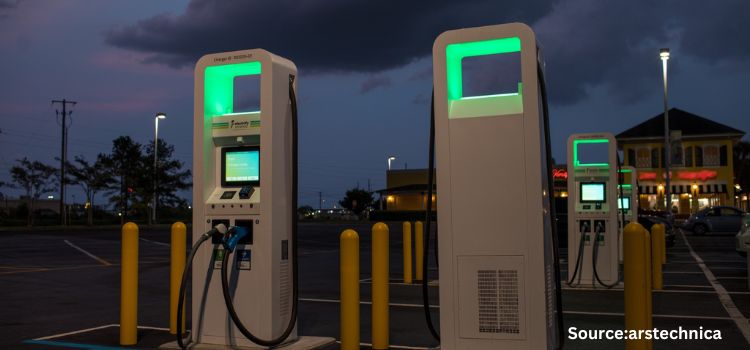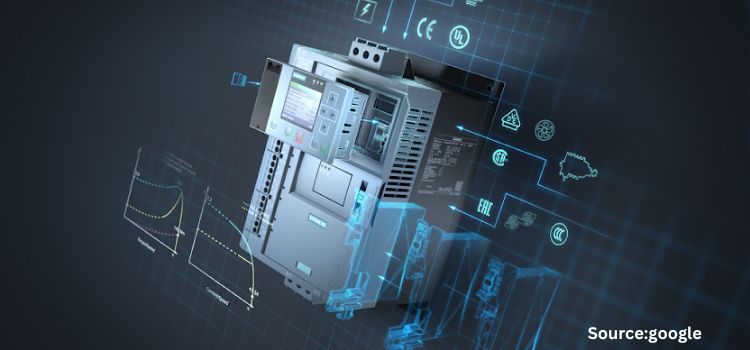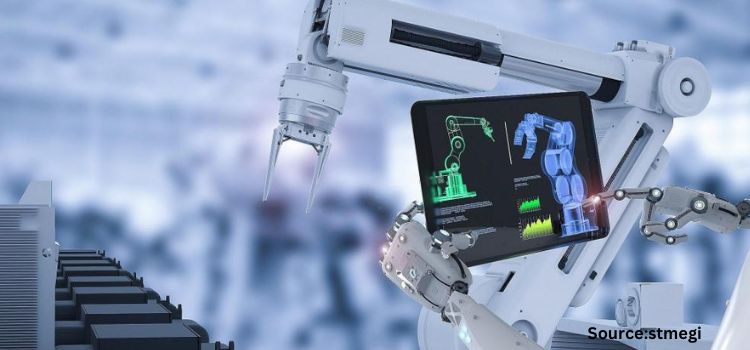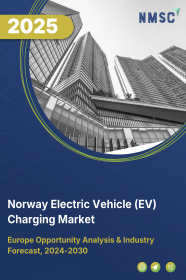
Norway Electric Vehicle (EV) Charging Market by Type of Charger (AC Chargers, and DC Chargers), by Charging Speed (Level 1, Level 2, and Level 3), by Connector Type (J1772 (Type 1), Mennekes (Type 2), CCS (Combined Charging System), CHAdeMO, and Others), by Charging Modes (Mode 1, Mode 2, Mode 3, and Mode 4), by Installation (Fixed, and Portable), by End User (Commercial, and Residential) – Opportunity Analysis and Industry Forecast 2023–2030
Industry: Automotive & Transportation | Publish Date: 04-Apr-2025 | No of Pages: 185 | No. of Tables: 146 | No. of Figures: 91 | Format: PDF | Report Code : AT863
US Tariff Impact on Norway Electric Vehicle (EV) Charging Market
Trump Tariffs Are Reshaping Global Business
Market Definition
Norway Electric Vehicle (EV) Charging Market was valued at USD 317.74 million in 2022, and is predicted to reach USD 2919.4 million by 2030, with a CAGR of 32.6% from 2023 to 2030. Electric vehicle chargers are defined by the amount of energy delivered to the vehicle’s battery per unit of time. It is an infrastructure that is used to connect the plug-in electric vehicle to an electrical outlet to charge the battery of the vehicle. Electric vehicle chargers are used to provide charging to EVs with a battery and the electrical source that helps to charge the battery.
Electric vehicles, neighborhood EVs, and plug-in hybrids can all be charged at a charging station by connecting to an electrical source. Advanced features including smart meters, cellular connectivity, and network access are available on some charging stations.
The charging of EVs can be carried out through several levels of charging such as level 1, level 2, and level 3. The higher the level of charging, the faster the charging process causing more power to be delivered to the vehicle. The use of electric vehicles significantly reduces the carbon footprints released into the atmosphere, which contain toxic gas. The growing threat of carbon emissions and other harmful gases stemming from transportation has triggered the vital necessity of adopting electric vehicles.
In addition, the penetration of EV charging is high in commercial spaces as compared to residential ones. Long-distance trips would benefit from ultra-fast charging capabilities made possible by public charging infrastructure. However, EV chargers for residential spaces offer significant growth potential as they are affordable and more convenient for charging electric vehicles as compared to commercial charging stations.
Norwegian Government Takes Significant Steps to Combat Air Pollution and Enhance Quality of Life
Serious majors have been taken by the Norwegian government to tackle the problem of air pollution to contribute to a safer life for its population. The Norwegian Parliament has established a national objective that all new vehicles sold by 2025 must be emission-free (electric or hydrogen).
In Norway, there were more than 470,000 battery electric vehicles (BEVs) with registration as of February 2022. The current administration has chosen to extend the zero-emission vehicle incentives till the end of 2022. The incentives will be updated and modified in line with how the market develops after 2022. Also, by June 2022, Norwegian sales of new plug-in passenger EVs (PEVs1) reached 90% of all new passenger car sales.
Various Companies' Strategic Efforts are Fuelling the Growth of The EV Charging Market in Norway
The presence of several companies that are engaged in various strategies such as product launch and collaboration, which in turn drives the growth of the EV charging market. For instance, in August 2022, NIO launched a second battery charging and swapping station in Norway. The company previously stated that it will build 20 second-generation battery swapping stations in Norway by the end of 2022, covering the top five major cities and major expressways.
Also, in May 2022, ABB and Eviny collaborated to install the world’s fastest electric car charger ‘Terra 360’. It has a maximum output power of 360 kW and can fully charge an electric car in less than 15 minutes.
Fast Chargers' High Initial Setup Costs Hinder the EV Charging Market Growth
The absence of incentives and concerns about the steep installation expenses for EV chargers could hinder the sector's growth. One of the most significant obstacles to expanding this industry is the substantial upfront cost associated with level 3 and ultra-fast chargers. While level 1 and level 2 chargers can require anywhere from 6 to 16 hours for a full charge, consumers are accustomed to refueling their conventional fossil fuel vehicles in just 5 to 7 minutes.
Fast chargers that can charge EVs in under 30 minutes are therefore in demand on the market. A level 3 charging station can be somewhat expensive at first, though. For those who might want to transition to EVs, this could be a deterrent because a lengthy charging period might interfere with their already hectic schedules.
Surging Adoption of Vehicle-to-Grid (V2G) EV Charging Stations in Norway Unlocks Promising Opportunities
A technology called vehicle-to-grid (V2G) EV charging allows plug-in EVs and the power grid to exchange electrical energy in both directions. Electric vehicles (EVs) can store extra electricity and release it to the grid thanks to V2G technology. This may enhance the functionality of the electrical component and increase value for EV owners.
The development of this concept has made charging for electric vehicles easier, and EVs are now among people's top transportation options. As a result, the entire market for charging stations is essential for connecting the electric vehicle to the grid and enabling the vehicle to charge.
Two V2G EV vehicle charging stations were erected by Enel Energia S.p.A. at the Italian Institute of Technology's Genoa headquarters. The installation is a part of MOV-E, a Nissan-sponsored corporate electric car sharing trial project. The Italian Institute of Technology received two battery electric vehicles (LEAF models) from Nissan as well as the Glide app management platform. The partnership between Enel and Nissan represents a shift in the way that technology is used for sustainable transportation.
As a result, manufacturers have a great chance with the V2G charging technology because it is predicted to change the EV industry and determine how EVs will be charged in the future. Although V2G infrastructure is more beneficial than smart charging, installing V2G charging stations has a hefty up-front cost. Manufacturers of EV connectors are projected to have opportunities to produce sophisticated connectors to withstand electrical architecture due to the predictable and anticipated expansion of V2G technology.
Competitive Landscape
The Norway Electric Vehicle (EV) Charging industry includes several market players such as Tesla Superchargers, Ionity, Grønn Kontakt, Kempower, Recharge, Kople, EVBox, Wattif EV, ChargePoint, Inc, ABB Ltd, Shell Recharge Solutions, Eviny, Circle K, Uno-X Charging Station, Ragde Eiendom.
Key Benefits
-
The Norway Electric Vehicle (EV) Charging market report provides a quantitative analysis of the current market and estimations through 2023-2030 that assists in identifying the prevailing market opportunities to capitalize on.
-
The study comprises a deep dive analysis of the market trend including the current and future trends for depicting the prevalent investment pockets in the market.
-
The information related to key drivers, restraints, and opportunities and their impact on the market is provided in the report.
-
The competitive analysis of the market players along with their market share in the Norway Electric Vehicle (EV) Charging market.
-
The SWOT analysis and Porter’s Five Forces model are elaborated in the study.
-
Value chain analysis in the market study provides a clear picture of the stakeholders’ roles.
Norway Electric Vehicle (EV) Charging Market Key Segments
By Type of Charger
-
AC Chargers
-
DC Chargers
By Charging Speed
-
Level 1
-
Level 2
-
Level 3
By Connector Type
-
J1772 (Type 1)
-
Mennekes (Type 2)
-
CCS (Combined Charging System)
-
CHAdeMO
-
Others
By Charging Modes
-
Mode 1
-
Mode 2
-
Mode 3
-
Mode 4
By Installation
-
Fixed
-
Portable
By End User
-
Commercial
-
Commercial Public EV Charging Stations
-
Destination Charging Stations
-
Highway Charging Stations
-
Fleet Charging Stations
-
Workplace Charging Stations
-
-
Commercial Private EV Charging Stations
-
-
Residential
-
Private Home
-
Apartment
-
Key Players
-
Tesla Superchargers
-
Ionity
-
Grønn Kontakt
-
Kempower
-
Recharge
-
Kople
-
EVBox
-
Wattif EV
-
ChargePoint, Inc
-
ABB Ltd
-
Shell Recharge Solutions
-
Eviny
-
Circle K
-
Uno-X Charging Station
-
Ragde Eiendom
REPORT SCOPE AND SEGMENTATION:
|
Parameters |
Details |
|
Market Size in 2022 |
USD 317.74 Million |
|
Market Volume in 2022 |
26 Thousand Units |
|
Revenue Forecast in 2030 |
USD 2919.4 Million |
|
Growth Rate |
CAGR of 32.6% from 2023 to 2030 |
|
Analysis Period |
2022–2030 |
|
Base Year Considered |
2022 |
|
Forecast Period |
2023–2030 |
|
Market Size Estimation |
Million (USD) |
|
Growth Factors |
The increasing government initiatives. The presence of several market players. |
|
Companies Profiled |
15 |
|
Market Share |
Available for 10 companies |
|
Customization Scope |
Free customization (equivalent up to 80 working hours of analysts) after purchase. Addition or alteration to country, regional, and segment scope. |
|
Pricing and Purchase Options |
Avail customized purchase options to meet your exact research needs. |

















 Speak to Our Analyst
Speak to Our Analyst



